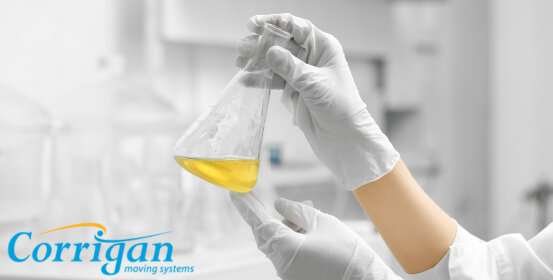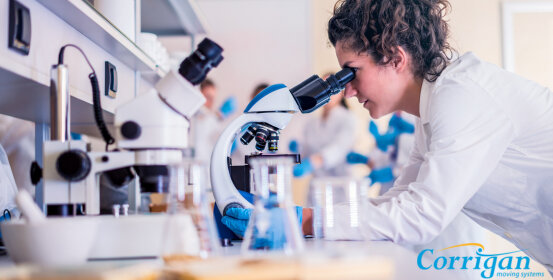Laboratory Relocation for Academic Institutions: Unique Considerations and Solutions

Moving a laboratory, whether within the same facility or to a new location, presents specific challenges that need focused effort. Farmington Hills Colleges and research facilities house a diverse array of equipment, important research materials, and delicate instruments. Achieving a successful move necessitates careful planning, expert knowledge, and a deep understanding of the academic environment. This thorough guide provides tips into handling the distinct aspects involved in the relocation of laboratory facilities.
Understanding the Farmington Hills Academic Landscape
Farmington Hills Colleges are vibrant, complex environments where research facilities play a critical role in teaching and research. Whether the relocation involves an individual laboratory or an entire research department, there are several key factors to take into account:
- Variety of Equipment: University labs typically contain a wide array of equipment, from regular lab benches and storage cabinets to sophisticated analytical instruments and specialized research apparatus. Each piece needs delicate handling and often has distinct moving needs.
- Sensitive Research Materials: Many university labs contain sensitive materials, such as biological samples, chemicals, and research data. These items often need careful handling, climate control, or secure transport.
- Collaborative Environment: Unlike industrial labs, university labs are frequently shared spaces used by multiple research groups or departments. Coordinating a relocation in such an setting demands clear communication and preparation to reduce interruption.
- Academic duties: Academic institutions have ongoing educational schedules. The relocation process must be scheduled around class schedules, guaranteeing minimal interruption on classes and student access to lab resources.
Key Considerations for Farmington Hills Academic Laboratory Relocation

- Advanced planning
Planning is the cornerstone of a successful lab relocation, especially in the educational environment. Begin planning as soon as the move decision has been made. Consult all concerned parties, including faculty, researchers, lab managers, and students, to learn their needs and schedules. Create a comprehensive moving plan that includes ane xhaustive inventory, a plan that matches academic timetables, and a clear communication strategy.
- Custom Solutions for Diverse Needs
Every university laboratory is distinct, with particular needs based on its scientific concentration and equipment. It’s crucial to design tailored approaches for each lab being relocated. This may include specialized packing for sensitive instruments, temperature-controlled transport for temperature-sensitive materials, or protected transport for risky chemicals. Corrigan Movers offers tailored services to handle these varied requirements, making sure that all parts of the relocation are executed meticulously.
- Managing Multiple Stakeholders
Academic moves include a diverse group of concerned parties, from teaching staff and researchers to administration and operations staff. Clear communication and coordination among these groups are vital. Create clear lines of communication and regular update meetings to keep everyone informed and engaged throughout the moving process. This method aligns expectations and lowers the chances of miscommunications or delays.
- Ensuring Regulatory Compliance
University labs must comply with strict rules, including those related to security, environmental protection, and research ethics. During a move, it’s essential to comply with these standards to avoid fines or interruptions to research activities. This includes correct paperwork for the transport of hazardous materials, compliance with biosafety protocols, and getting appropriate permits. Corrigan Moving Systems’ knowledge of regulatory compliance makes sure that all legal requirements are fulfilled during your laboratory relocation.
- Minimizing Downtime and Disruption
Academic schedules are often filled with courses, research deadlines, and continuing work. Cutting downtime is vital to guarantee that academic duties and scientific projects continue smoothly. Plan the move during semester breaks or other downtime periods to reduce disruption. Additionally, collaborate with a Farmington Hills moving company that can provide flexible scheduling and quick packing and unpacking to expedite the process.
- Securing Research Data
Research data is often one of the important elements in an academic laboratory. During relocation, it’s crucial to ensure that all data is securely backed up and safeguarded. This may involve relocation of hard drives and computer servers or employing secure online storage. It’s also important to comply with any university guidelines regarding data security and privacy during the move.
Specialized Solutions from Corrigan Moving Systems
Corrigan Moving Systems has wide-ranging experience in handling the intricacies of laboratory relocations for Farmington Hills academic institutions. Here’s how we tailor our offerings to meet the unique needs of academic labs:
- Expert Handling of Equipment: Our team is trained to care for a wide range of laboratory equipment, including microscopes, incubators, extraction hoods, optical tables, and centrifuges. We guarantee that delicate instruments and sensitive apparatus are wrapped, moved, and reinstalled with the highest precision.
- Secure Transport for Sensitive Materials: We offer specialized packing and climate-controlled transport options for biological samples, chemicals, scientific glassware, and other delicate materials. Our transport solutions ensure these objects get to their destination securely and undamaged, maintaining temperature-controlled environments ranging from room temperature to -190 degrees. Devices remain plugged in and operational during transport, with 24/7 monitoring.
- Regulatory Compliance and Documentation: Our expertise in regulatory compliance means we can oversee all necessary documentation and permits, making sure that your move complies with all pertinent safety and legal guidelines. This includes biosafety protocols, hazardous material transport regulations, and environmental protection guidelines.
- Customized Moving Plans: We design comprehensive, customized moving plans for each move, adapted to the particular requirements of your labs and aligned with your academic schedules. Our plans ensure minimal disruption to teaching and research activities.
- Limiting Disruption: We work closely with your team to plan the move around your academic calendar, minimizing disruption to classes and research activities. Our flexible scheduling and quick setup and teardown speed up the move, guaranteeing a easy relocation.
- Temperature-Controlled Transport: We oversee the moving of your freezers and refrigerators, guaranteeing climate-controled environments are maintained throughout the move. This service is vital for keeping biological specimens, reagents, and other heat-sensitive substances.
How to Get Started with Your Farmington Hills Laboratory Relocation
If you’re considering a laboratory relcoation inside or to a new university, working with a professional Farmington Hills moving company like Corrigan Moving Systems can be crucial. With our specialized moving services and deep understanding of the educational landscape, we are prepared to oversee the unique challenges of your move.
Reach out to Corrigan Moving Systems now to go over your laboratory relocation needs. Our expert team is ready to provide a customized plan that guarantees a smooth, efficient, and successful relocation, enabling you to keep up your main activities—instruction and research. Let us help you transition smoothly to your new place, preserving the integrity of your work and the continuity of your academic mission.
- Farmington
- |
- Clawson
- |
- Rochester Hills
- |
- Trenton
- |
- Detroit
- |
- Beverly Hills
- |
- Berkley
- |
- Sterling Heights
- |
- Northville
- |
- Troy
- |
- Royal Oak
- |
- Grosse Pointe
- |
- Saint Clair Shores
- |
- Livonia
- |
- Dearborn
- |
- Novi
- |
- Warren
- |
- Westland
- |
- Ferndale
